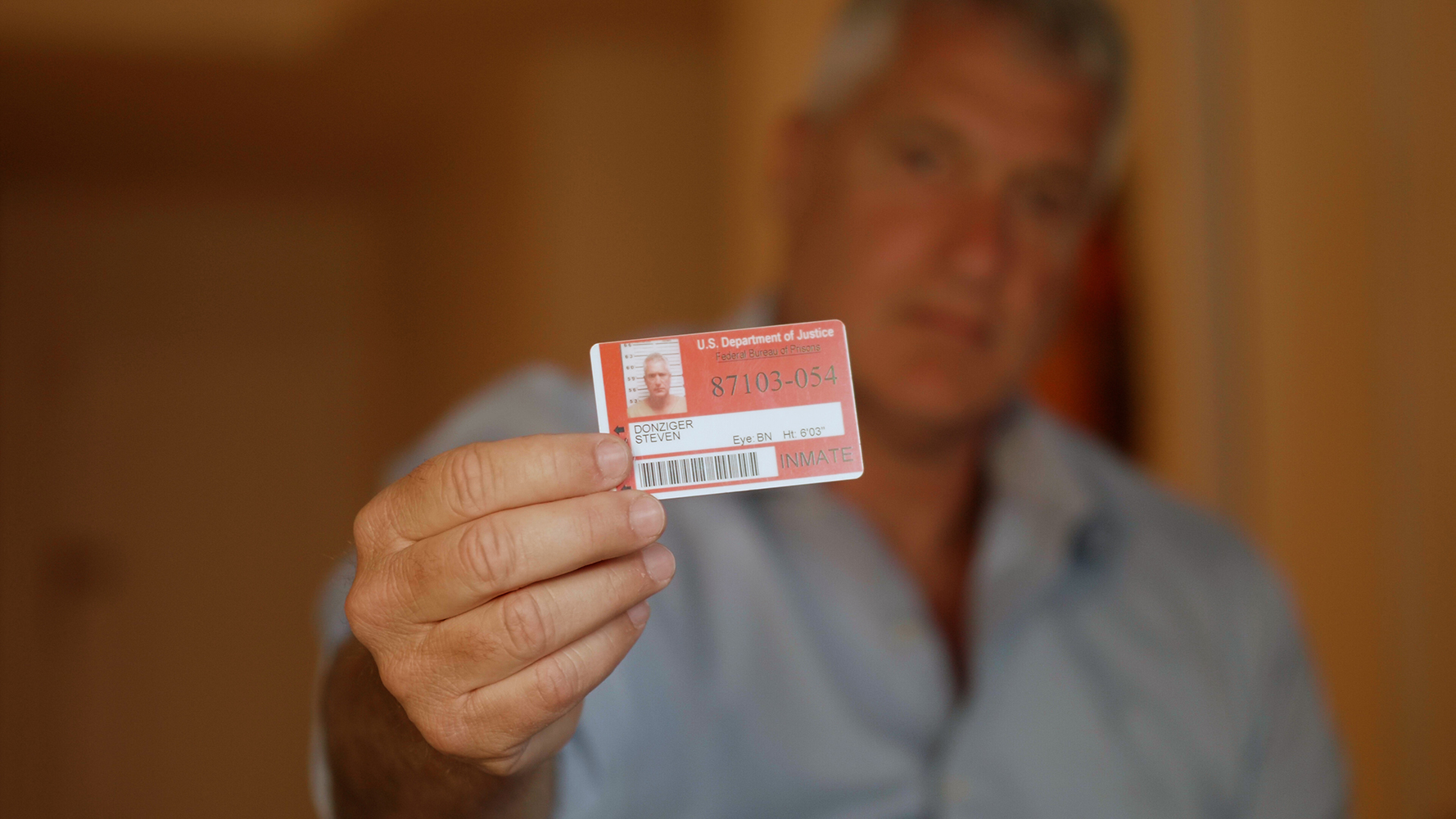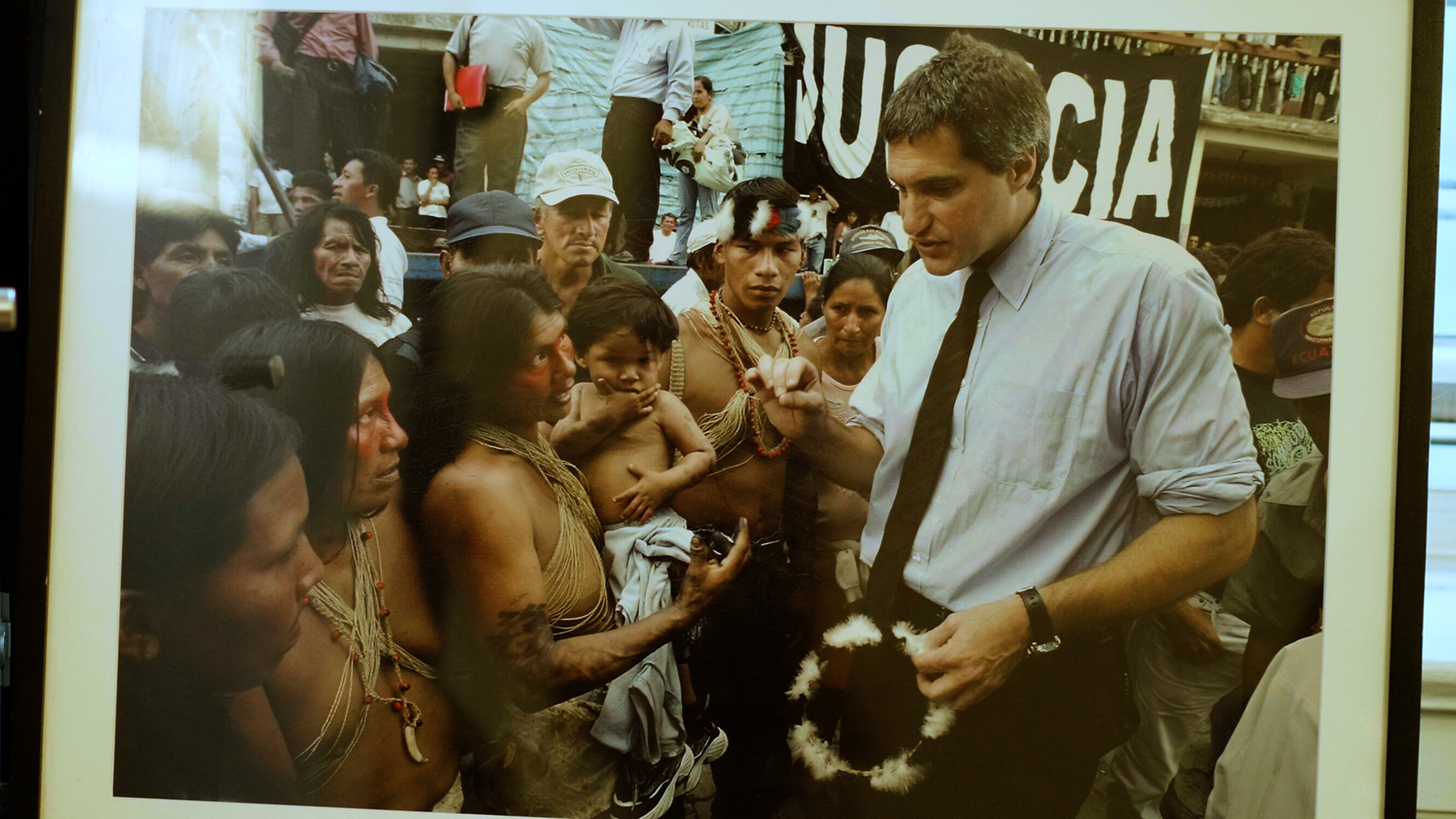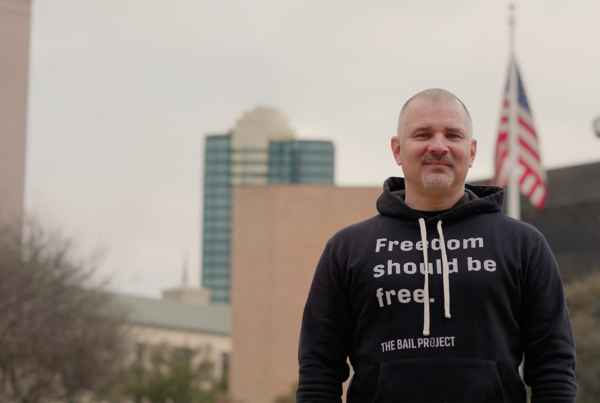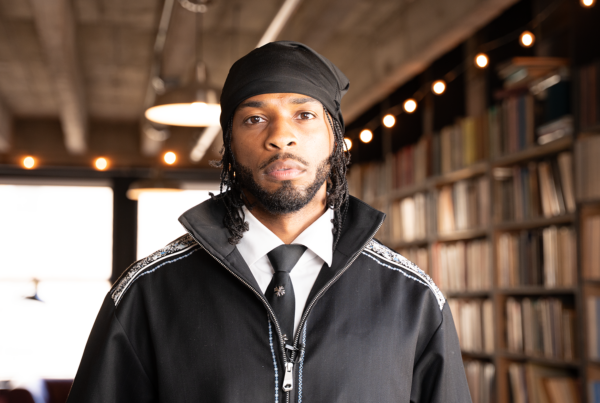Video Transcript
My name is Steven Donziger. I’m a human rights lawyer and I was given the highest bail for a misdemeanor in U.S. history.
Cash bail is inherently discriminatory and unfair. If you have no money, you have the same situation as someone with money, you might have to spend years in prison pretrial, whereas the person with money is out. In most countries, civilized countries, do not do that, but the United States does it in excess.
There’s millions of people every year in the United States locked up without trial, locked up without being convicted of a crime. Everyone should be treated equally, regardless of money. Cash bail should be ended.
I live in New York City, Manhattan. I’ve lived here 25 years. It’s my home. I really like the city. I like the diversity. I like the different types of people. I like the energy. I like the community. You know, a lot of people don’t realize while this is an enormous city, it’s really an intimate city. And if you sort of break it down into where you live in your neighborhood everybody knows each other. It’s really safe because there’s so many people around. I find it’s a city that’s easy really to learn a lot in and grow in.
My legal career is one of dedication to human rights and really fighting for the most vulnerable in our society. I’ve spent a almost three decades now, on a case out of Ecuador on behalf of Indigenous peoples and farmer communities whose ancestral lands were poisoned by Chevron.
They drilled 400 plus well sites over this large area of rainforest. And they designed a system of oil extraction to literally dump, deliberately to save money, billions of gallons of cancer-causing toxic waste into the rainforest, including into rivers and streams that local communities relied on for their drinking water, their bathing, and their fishing.
This created an ecological catastrophe. It killed people and still kills people to this day because no one has cleaned it up. And we’ve been battling for years to hold Chevron accountable in a court of law.
There’s really two cases, the underlying environmental case against Chevron which the Amazon communities in Ecuador won a historic achievement in 2011. They’re battling Chevron to force the company to comply with the rule of law. Chevron rather than pay the judgment retaliated by suing me in a civil racketeering case for $60 billion, the most money any individual ever in the history of the United States has ever been sued for.
So I refused to turn over my computer and confidential case file to Chevron for various valid legal reasons. So when I challenged that on appeal, the judge charged me with criminal contempt of court.
They promptly had me locked up at home. They imposed what I believe is maybe the largest bail ever imposed on anyone charged with a misdemeanor which was $800,000. On top of the fact I was put on house arrest on a misdemeanor. I mean, I think they calculated I wouldn’t be able to get the money to put up for the bail.
Luckily I did. There were people who care about me, who posted my bond from equity in their home. So the sentence for a misdemeanor, the maximum is six months in jail. I spent over four times my maximum sentence locked up before my trial even started.
I’m like a relatively privileged white dude in America. I mean, think about that. And I got an $800,000 bail. Luckily, because of the resources I had and the people I know I was able to project out and explain this to the world even while I was detained at home.
But think about all the millions of people every year in this country who get arrested for petty crimes, who have little or no money, cannot post bail, get locked up pretrial, and have no voice. And it happens to many people because they have no money. Total discrimination against people with no money.
And they’re violating the U.S. Constitution. Any reasonable interpretation of the Eighth Amendment, which is a prohibition on cruel and unusual punishment would outlaw a feature that has such a punishment component on someone who’s never been given a trial just because they have no money. So yeah, I think we have to eliminate cash bail.
How do you quantify losing almost three years of my life at a time that my only child, my son, was 12 and 13 and 14? He lost three years of full use of his father, and I lost three years of enjoyment with my son and my family by being locked up. How do you calculate that? What’s that worth?
I have a lot of hope. I’m really an eternal optimist. I really believe in the human spirit and the inherent generosity of all people. The challenge is the politics, like we need as a movement to organize the people at the grassroots level, to create the kind of world that we deserve. You know, a world that isn’t driven exclusively by profit.
The other thing we need to do is support things like The Bail Project and help finance them so the whole cash bail system can slowly be chipped away at, so we can have the kind of political space and the freedom we need to do our work as advocates necessary to create the just world that we all aspire to.
The story of the highest misdemeanor bail in the U.S. starts in the Ecuadorian rainforest.
Steven Donziger has seen his share of injustices during his career as a human and environmental justice lawyer, but nothing compares to the unprecedented human health problems and suffering he saw in Ecuador.
Starting in 1993, Steven famously represented 30,000 people from Indigenous and farmer communities in a class action lawsuit against Chevron, after the multinational oil corporation spent decades deliberately dumping 18 billion gallons of toxic waste in the rainforest, leading to what is referred to by many as “Amazon Chernobyl.”
If you’ve seen the acclaimed 2009 documentary Crude, you may be familiar with this case and the enduring destruction and harm faced by the plaintiffs. But the story doesn’t end where the documentary does. It also didn’t end in 2011 when an Ecuadorian court finally found Chevron liable, or in 2018 when Ecuador’s highest court upheld a $9.5 billion judgment against Chevron. Instead, Chevron doubled down on a decades-long retaliation campaign that they described in an internal memo as their “long term strategy to demonize Donziger.” Their tactics ultimately resulted in Steven spending 943 days on home incarceration, being held on an $800,000 bail, spending another 45 days confined in federal prison, and being stripped of his passport and license to practice law.
We sat down with Steven in his Upper West Side New York apartment to hear his story and learn more about his experience with bail and pretrial incarceration. Watch the video below.
Unaffordable cash bail is coercive and controlling in practice.
The $800,000 bail amount set by the judge in response to Steven’s misdemeanor contempt of court charge may be uncommon, but the experience of having an unaffordable cash bail amount is not. Almost half a million people sleep in jail cells across the country every night, many because they can’t afford bail. A vast majority of these people will end up waiving their right to a fair trial and plead guilty just to go home.
The original intention of bail was as an incentive to help people get back to court – an affordable amount that would be fully reimbursed after their case closed. But with the growth of mass incarceration and the for-profit bail bond industry, bail is now used as a way to coerce guilty pleas and elicit payments from people in desperate situations already challenged by poverty. Cash bail fundamentally undermines the presumption of innocence.
“Any reasonable interpretation of the Eighth Amendment, which is a prohibition on cruel and unusual punishment would outlaw a feature that has such a punishment component on someone who’s never been given a trial just because they have no money. So yeah, I think we have to eliminate cash bail.”
The relationship between environmental justice and pretrial justice is undeniable.
Both the fossil fuel and bail bond industries employ similar tactics, undermining human rights and launching attacks on dissenting voices that challenge their profit margins. This manipulation of the legal system can discourage future advocates from speaking out.
The intersections within the environmental justice movement and the fight for pretrial justice don’t stop at powerful industry-funded opposition. Marginalized communities bear the brunt of environmental harm and climate crises, and are also those most impacted by the harms of cash bail. They are prime targets for corporate exploitation and collateral damage as companies privatize profits while socializing costs.
These struggles are intertwined and demand collective action and practical engagement from us all.
Audacious advocates like Steven Donziger are changing the world for the better.
Every day at The Bail Project we are contacted by public defenders across the country. They call us not because it is a requirement of the job, but because they see the injustice of cash bail, the two-tiered system of justice it creates, and the severe negative impacts it has on their clients. With the help of our supporters and generous donations, we are able to step in and provide their clients with free bail assistance and connections to voluntary community-based supportive services.
Many of these same public defenders speak passionately about bail reform, using their personal resources to support advocacy and policy change initiatives, like The Bail Project, aimed at creating a pretrial system that is more just, equitable, and humane for everyone, no matter their race or wealth.
Across America, public defenders are not giving up hope, and neither is Steven Donziger. To this day Chevron has not paid one cent of the money owed to the Indigenous and farmer communities in the Ecuadorian judgment – but he hasn’t stopped advocating for his clients and himself by working to change the industries and systems that have harmed them.

”We need to support things like The Bail Project so the whole cash bail system can slowly be chipped away at, so we can have the kind of political space and the freedom we need to do our work as advocates, necessary to create the just world that we all aspire to.
Steven Donziger
Join The Bail Project and Steven Donziger in the fight for a more hopeful world. A world where corporate interests and greed do not trump liberty and equal justice for all, where Indigenous and farmer communities can live on clean and safe ancestral lands, and where cash bail no longer exists.
Thank you for engaging with our content. People like you make a better world possible – a world where justice is not determined by someone’s wealth. The Bail Project is not only an immediate lifeline for people held on unaffordable cash bail, but a growing megaphone for public education and social change. If you have the means and found value in our content, please consider becoming a donor today.












